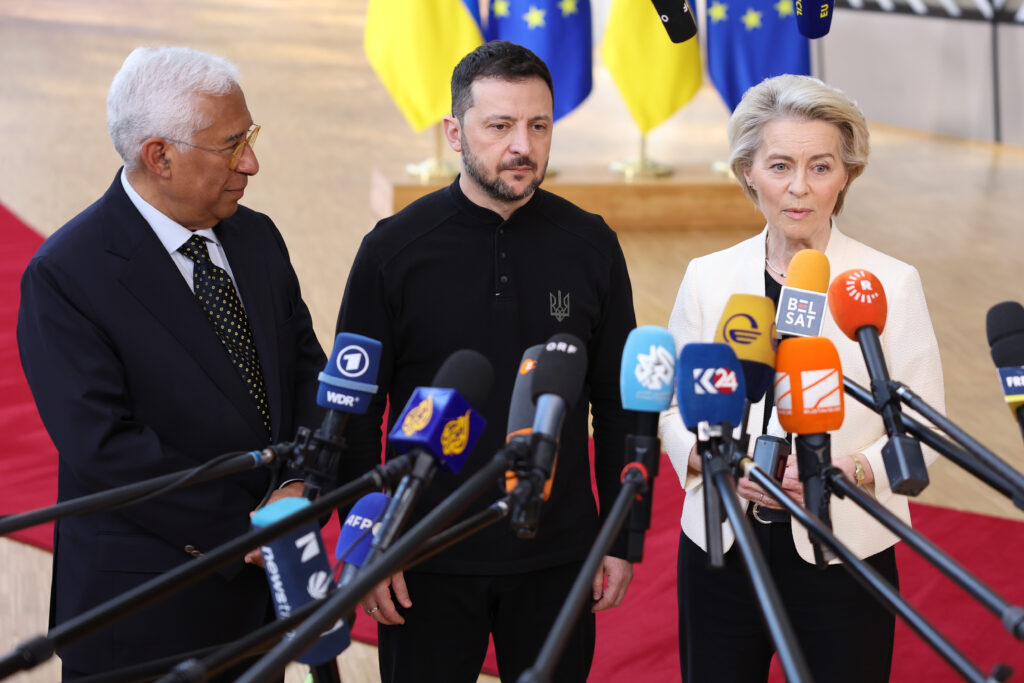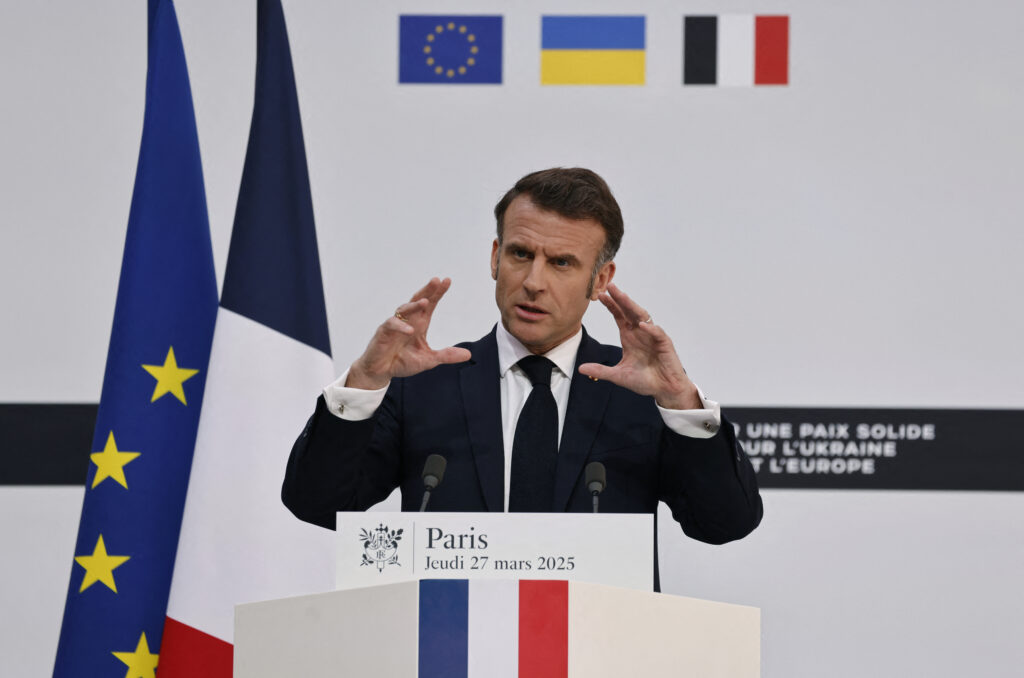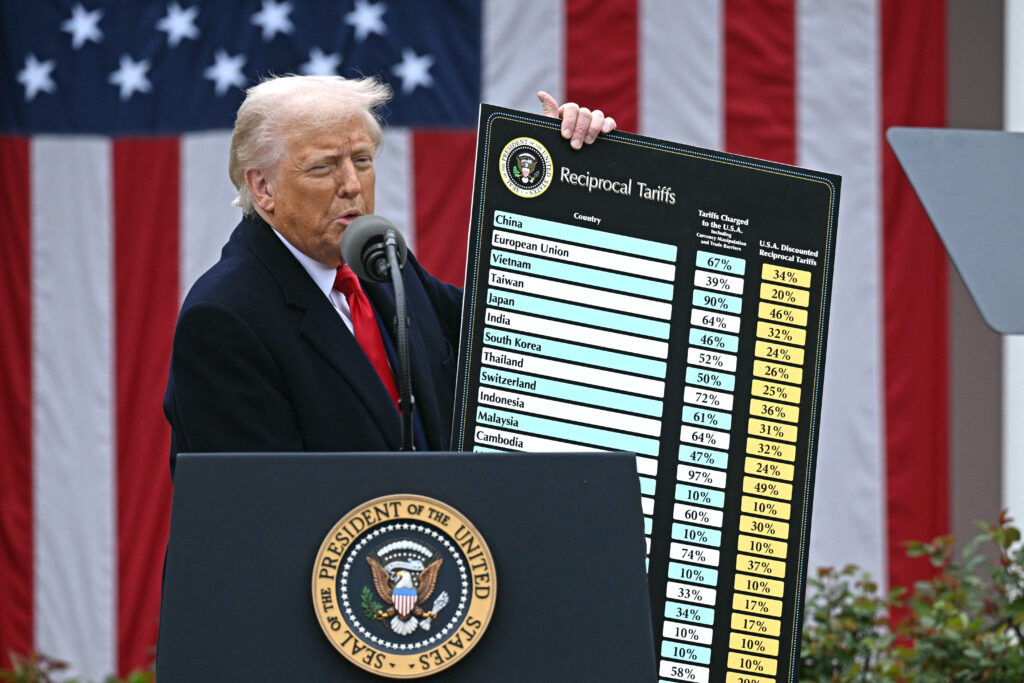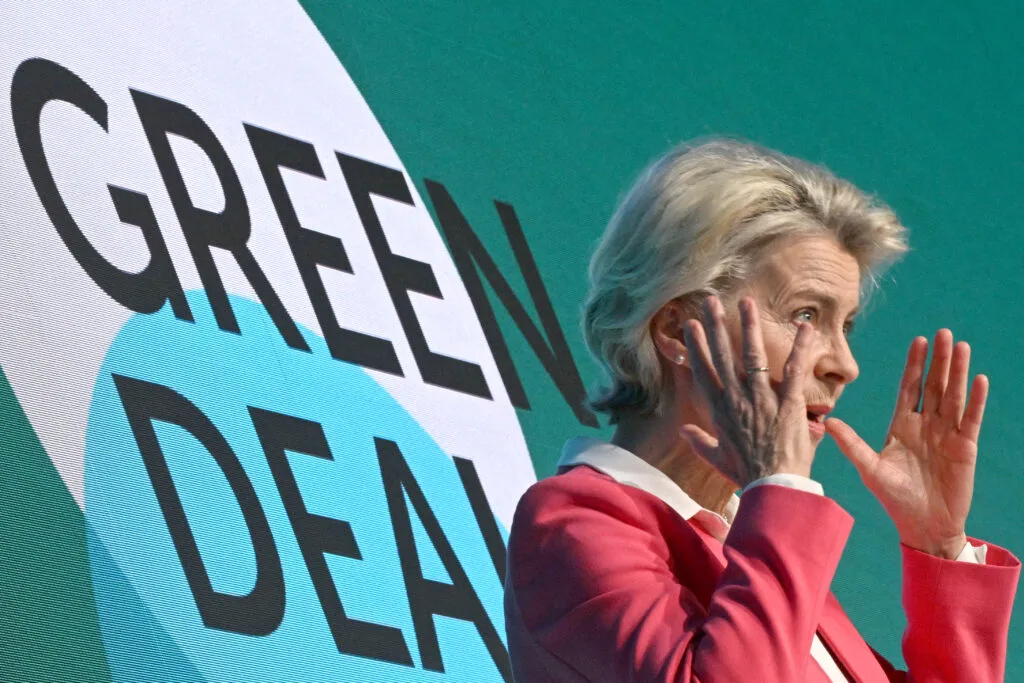Brussels – In the event of a US disengagement from the Old Continent, a broad majority of Europeans would accept an increase in EU defense budgets. There are the usual distinctions, of course: mostly geography and political affiliation influence the responses, with an interesting optical effect that returns the image of a horseshoe, where the extremes of far-right and far-left are closer to each other than they are to the center.
More than two out of three Europeans agree with tariff countermeasures from Brussels in response to Washington’s tariffs, which should take effect next week. However, opinions on potentially sending troops to Ukraine are less clear-cut, as are those on the balance between the Green Deal and economic growth.
European rearmament and the war in Ukraine
According to the latest poll by the Polling Europe Institute, which collected responses from more than 5 thousand citizens in the 27 member states during March, nearly three out of four Europeans say they would support an increase in national military spending should Uncle Sam stop guaranteeing continental security. They approve, in effect, the spirit of Ursula von der Leyen’s ReArm Europe plan that loosens the reins for governments to incur unlimited autonomous debt.
Thirty-nine percent say the chancelleries should increase their defense budgets “sharply,” while 34 percent would prefer a “slight” increase, for a total of 73 percent. The difference from March last year, when Joe Biden was still in the White House, is marginal (72 percent twelve months ago). On the other hand, one-fifth of respondents believe there should be no increase, and 7 percent would like to see a reduction in national defense budgets instead.

Looking at the geographic distribution of preferences, Italy is the only member state among those surveyed to have an absolute majority (albeit small, at 51 percent) of interviewees opposed to increased military spending. For all other areas, the percentages in favor are above average: 79 percent in Germany and Northern Europe, 76 percent in France, Spain, and Central and Eastern Europe.
In terms of political groups, the most staunch proponents of continental rearmament are undoubtedly the voters of the Renew Liberals (87 percent) and the Populars (86 percent), followed by the Socialists (77 percent) and Conservatives (75 percent). In contrast, the most skeptical are those identifying themselves with the Left and the ESN Sovereignists: 42 and 32 percent believe that the 27 member states should not increase defense spending.
The picture becomes more uncertain regarding the potential sending of European troops to Ukraine as a monitoring force for a possible ceasefire (i.e., as peacekeepers, although it should be noted that this is not what the so-called “willing ones” led by Emmanuel Macron and Keir Starmer are talking about ). Forty-five percent of respondents would be in favor, compared to 35 percent against.

Spain is the most convinced country (64 percent in favor), while Italy is the most skeptical (49 percent opposed). At the political level, leading the “interventionist” front are still the Liberals (56 percent) followed by Christian Democrats and Social Democrats (both at 55 percent), while the “Pacifists” are again in the extreme areas of the Sovereignist ultra-right and the radical left (59 and 44 percent opposed, respectively), followed by the nationalists of the Patriots (42 percent).
Tariffs and counter-tariffs
Even on economic issues, Europeans have divided opinions. After the (widely announced) shock of tariffs that the Donald Trump administration imposed, more than two-thirds of those surveyed by Polling Europe (67 percent) agree with the adoption of countermeasures by Brussels, even at the cost of higher prices for affected consumer goods. Less than a fifth, 19 percent, disagree.
At the national level, France and Spain are the most ardent supporters of European counter-tariffs (78 and 76 percent in favor, respectively). Germany and Italy are the least supportive, as the two countries are traditionally devoted to exporting across the Atlantic (23 and 22 percent opposed).

The consensus for EU tariff countermeasures holds mainly at the center of the political spectrum: 77 percent of Socialist voters are in favor, followed by 75 percent of Liberals and 74 percent of the EPP. The least enthusiastic about the idea of trade escalation with Washington are the sympathizers of the various right in the European Parliament: 34 percent of those who vote for parties affiliated with the ESN, 26 percent of conservative voters, and 20 percent of those from the Patriots group.
Still, regarding EU-US economic relations, 68 percent of respondents believe that the 27 member states should invest more in “technology” to break free from dependence on the US ally (primarily Spanish and French, at 75 and 74 percent). In comparison, only 12 percent (including 17 percent of Germans) say we can continue to rely on overseas technologies.
Environmental Policies
Finally, the most controversial issue seems to be the Green Deal and the effect of environmental regulations on the health of European industry. According to over one in three (34 percent), green regulations hinder growth, while 30 percent believe that they are not strict enough and do not sufficiently protect the environment.

In the first group, there are mainly Germans and citizens of Central and Eastern Europe (40 and 37 percent, respectively), as well as voters of the more and less radical rights (55 percent of the Sovereignists, 47 percent of the Conservatives, and 45 percent of the Patriots). Instead, those who would like more stringent regulations are mainly Italians and Spaniards (36 and 34 percent). At the political level, this response is popular among sympathizers of the Greens (53 percent) and the Left (47 percent).
One-fifth of respondents say that the balance achieved by the twelve-star legislation is satisfactory. Among them, the highest percentages are in Spain and Germany (22 and 21 percent), as well as among those who vote Renew, the EPP, and S&D (28, 26, and 25 percent, respectively), which makes sense given that these very political forces have drafted most European legislation.
English version by the Translation Service of Withub

![I ministri responsabili per il Commercio riuniti per discutere la risposta ai dazi di Donald Trump [Lussemburgo, 7 aprile 2025. foto: European Council]](https://www.eunews.it/wp-content/uploads/2025/04/commercio-250407-350x250.jpg)





